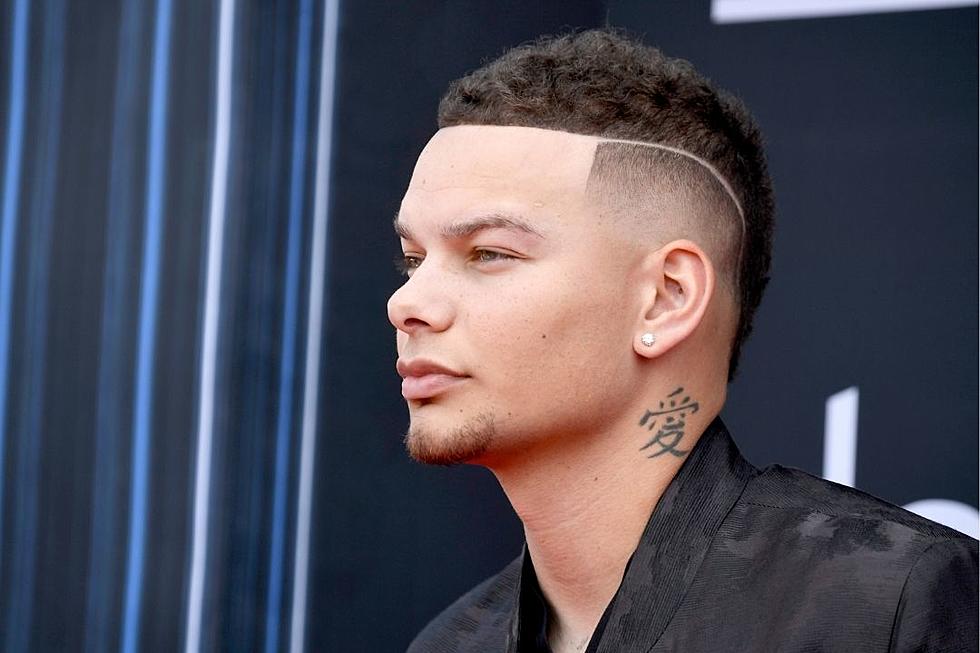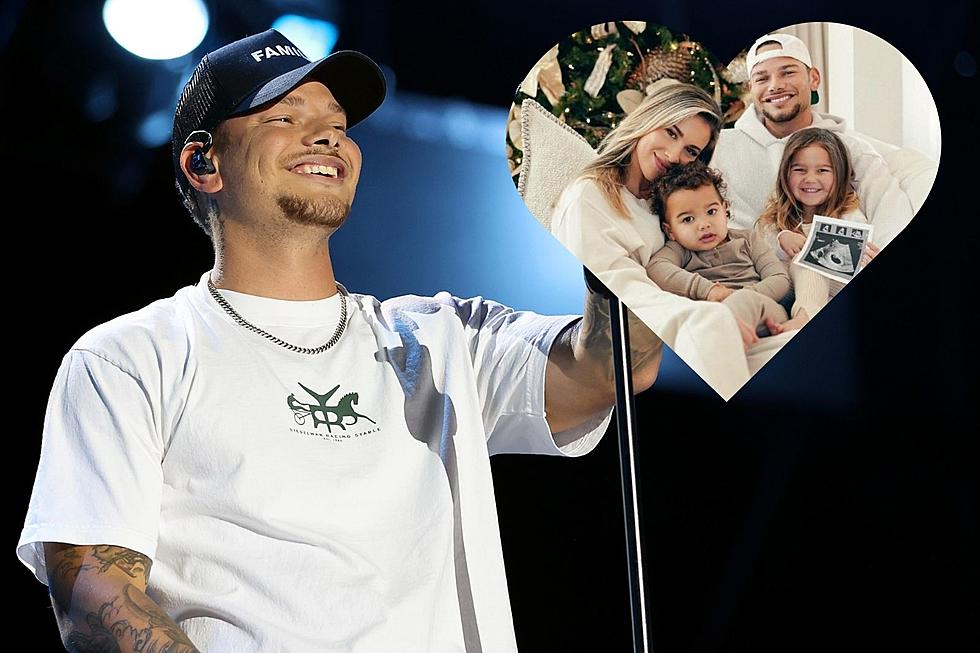
Kane Brown Admits the Response to His ACM Awards Win Felt Tokenizing
In a new interview, Kane Brown admits that the response to his recent ACM Awards win made him feel tokenized because of his race.
Brown, "Black Like Me” singer Mickey Guyton and Brothers Osborne sat down with award-winning journalist Marissa Moss for a cover story for Billboard, and the artists let their guards down and got vulnerable during the interview, really diving in to where they all are currently in their career journeys.
Though all three artists have seen wins recently on different fronts, they all admit one thing to be true: Success as a minority in the country music industry is still a struggle. Brown, in particular, admits that with the lack of diversity in mainstream country, he wonders if some of his victories could partly be a result of tokenism.
The thought crossed his mind when he won his first-ever ACM Award in April, when his video for "Worldwide Beautiful" took home Video of the Year. Brown was the first Black artist ever to win the award.
“I just won my first ACM Award, and it wasn’t like, 'Congratulations on winning your first ACM. How does it feel?’ It was like, ‘How does it feel being Black and winning your first ACM?’” Brown shares. “So in my head, I was like, ‘I feel like I’m about to win this award because of everything going on right now.’”
While Brown’s career successes make it clear that his award was the result of hard work and talent, his fears of being tokenized shine a light on the lack of diversity within the industry — a situation that he has been working to change. Brown runs both a publishing company and a label imprint, through which he is able to give opportunities to people he feels deserve them.
“I just sign whoever is a good writer,” says Brown. “I just want to give everybody a chance — no matter where you come from, no matter where you have been — and just leave the door open.”
That's a move Guyton refers to as “walking the walk."
Guyton also shares the difficulties she faces as a Black woman in the country music industry. Though it has been a big year for her in terms of doors opening for her career, she believes there’s still a long way to go.
"It’s an exciting time. But I think to myself, ‘Is it really changing?’” she says. "I’m still getting called an ‘f-ing n-word' on Twitter, and I’m still getting my child called ugly and [being told] to go back to the projects.”
During the interview, T.J. Osborne also touched on what it’s been like for him since he came out as gay in February. He, too, has felt tokenized as different organizations have reached out to him during Pride Month.
“It’s nice when people want to help out," Osborne states. “But it can be frustrating, especially in Pride Month: ‘Do a playlist, Spotify wants you to do this.’ If you want to help me, do that s--t in f--king November. You doing it in Pride Month is nice, but that’s really helping you.’”
2021 ACM Awards Show Photos:
See Pictures From the 2021 ACM Awards Red Carpet:
More From Taste of Country
![10 Times Country Artists Fell While Performing on Stage [Watch]](http://townsquare.media/site/204/files/2024/04/attachment-Ernest-Carly-Pearce-Tim-McGraw.jpg?w=980&q=75)
![Kane Brown’s Daughter Kingsley Picks Out Dad’s Tour Outfits in Adorable Video [Watch]](http://townsquare.media/site/204/files/2024/04/attachment-Untitled-design-2024-04-05T093227.298.jpg?w=980&q=75)
![Kane Brown Serves up Soaring Stadium-Sized Anthem, ‘Fiddle in the Band’ [Listen]](http://townsquare.media/site/204/files/2024/03/attachment-KaneBrown_GilbertFlores_GettyImages.jpg?w=980&q=75)

![Kane Brown, Carly Pearce Surprise C2C Fans With a Duet [Watch]](http://townsquare.media/site/204/files/2024/03/attachment-Carly-and-Kane.jpg?w=980&q=75)
![Kane Brown’s Wife Shares Photos From Her Dreamy Baby Sprinkle [Pictures]](http://townsquare.media/site/204/files/2024/03/attachment-KaneBrownKatelyn.jpg?w=980&q=75)

![Kane Brown’s ‘Thank God’ Performance Turns Into Surprise Family Affair [Watch]](http://townsquare.media/site/204/files/2024/03/attachment-Kane-Brown.jpg?w=980&q=75)

